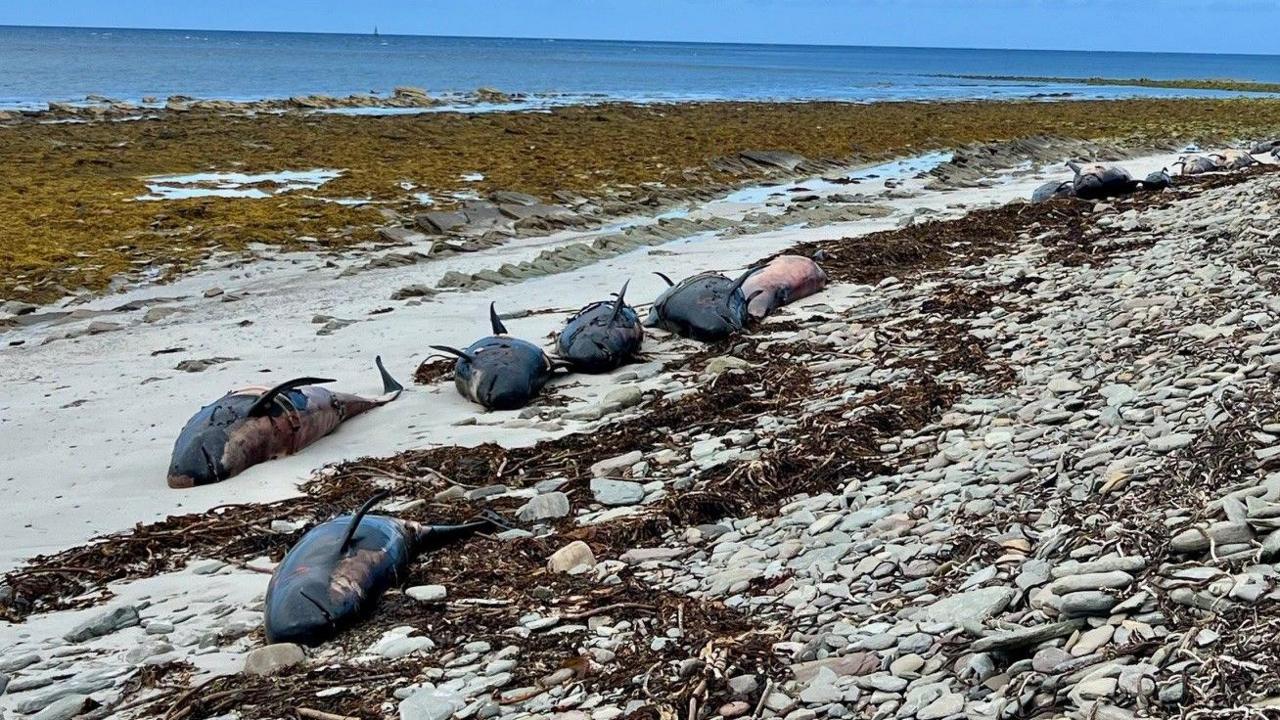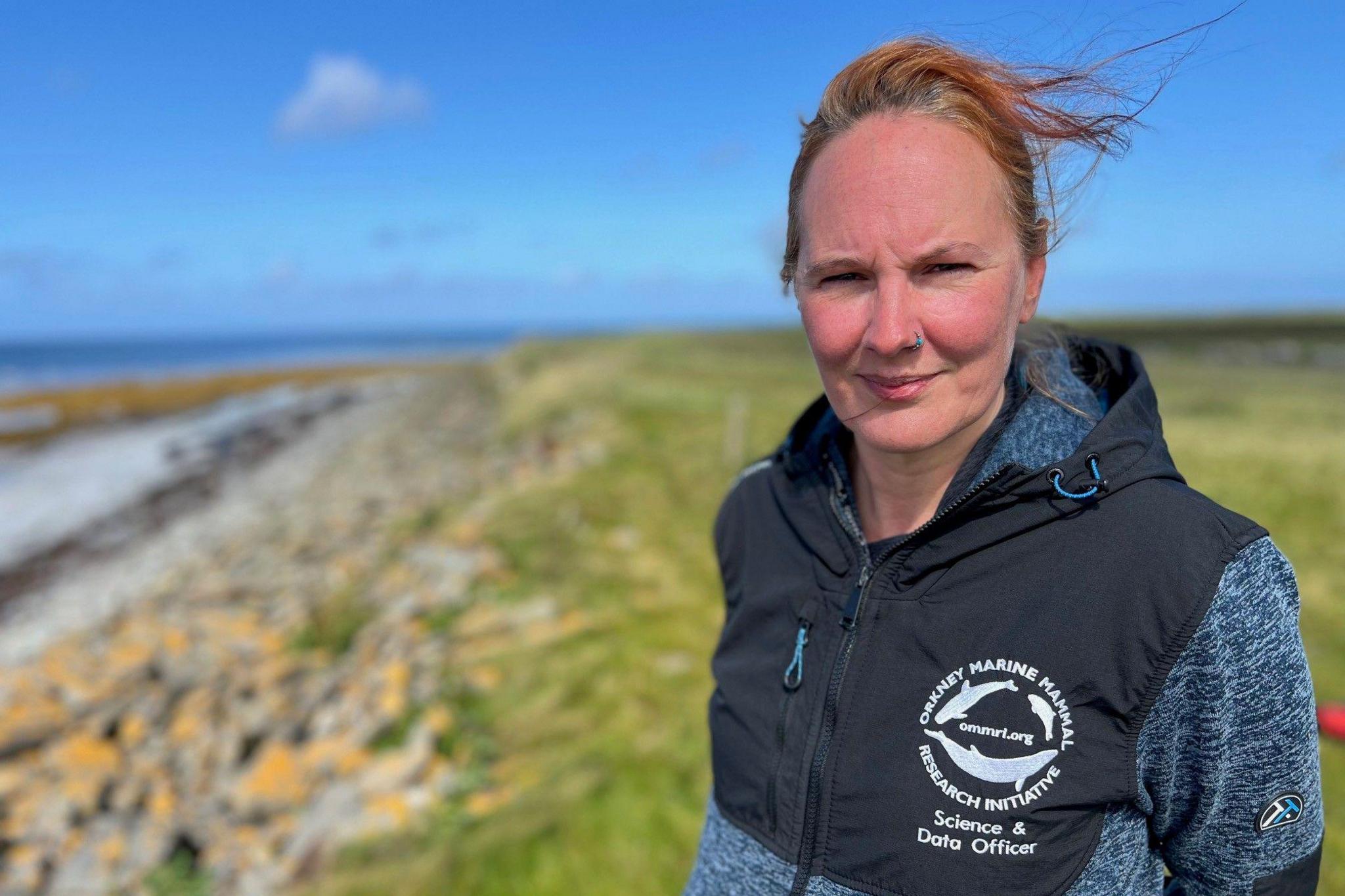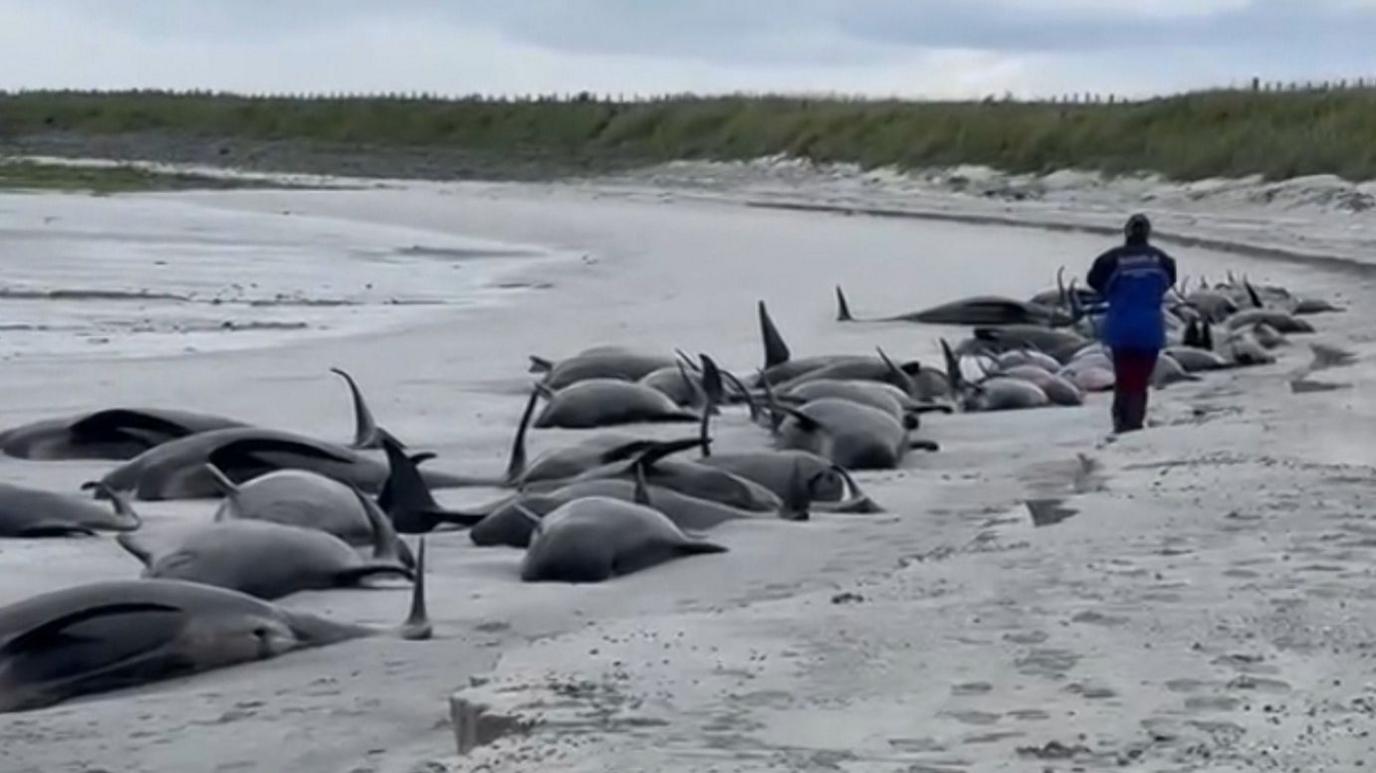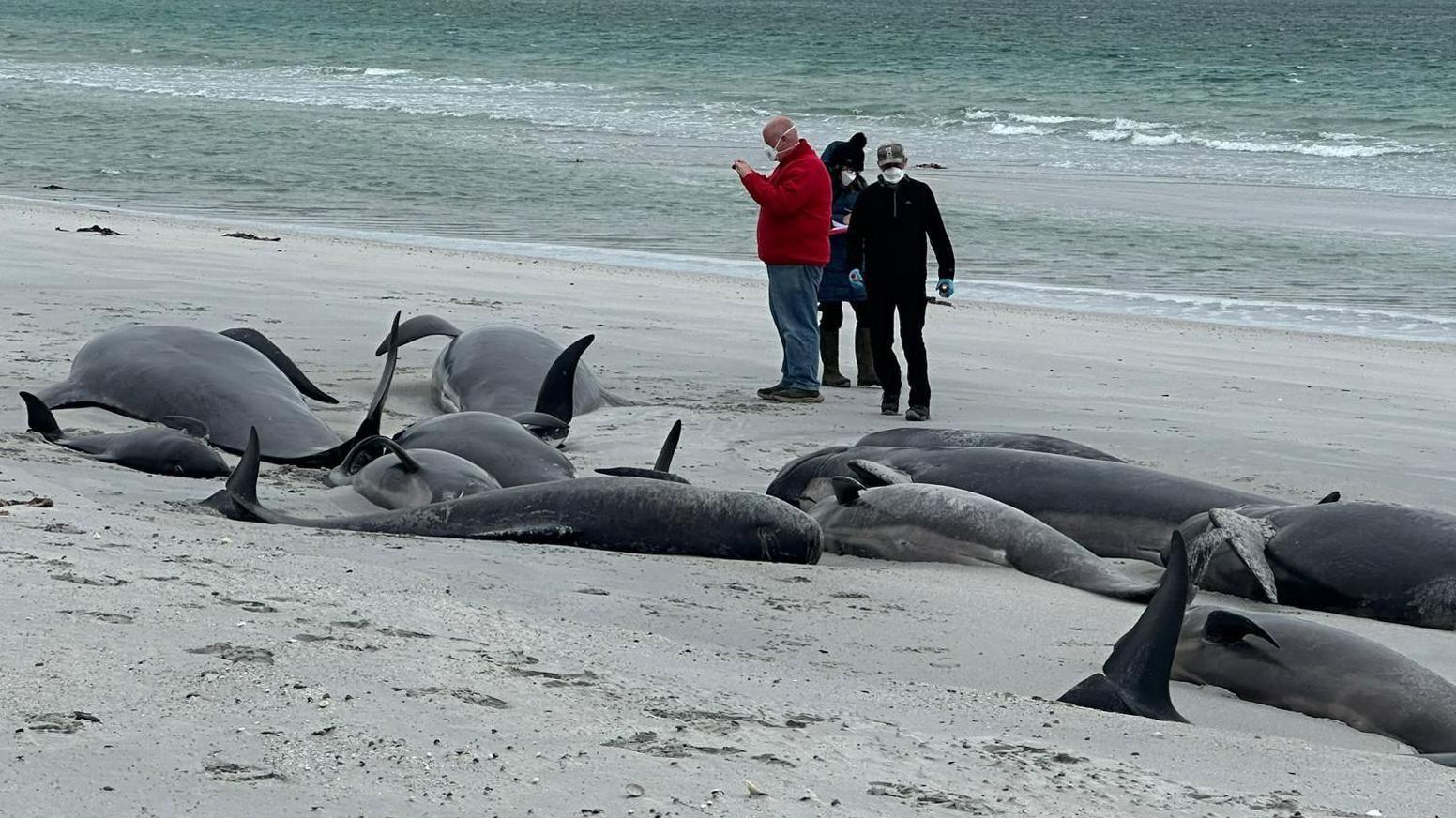Pregnant female among pod of 23 dead whales

The whales may have been dead for several days before being found
- Published
A pregnant female was among a pod of 23 pilot whales found dead after a mass stranding in Orkney.
The whales were discovered on the Orkney island of Sanday on Sunday.
It is thought they may have been dead for several days. Tests are being carried out.
Emma Neave-Webb, of Scottish Marine Animal Stranding Scheme (Smass), said the whales appeared to have been healthy, and that the cause of the incident may never be known.
Ms Neave-Webb told BBC Radio Orkney she spent Sunday taking samples from the pod.
"We've been on the site basically taking as much information from each animal as we can," she said.
"They are fairly decomposed, they have obviously been dead a few days.
"We've been taking measurements. From that, we can get an idea of how healthy the animals are, how well fed they are."
She said samples of tissue, skin and blubber would also be analysed.
"We can do genetics and find out how the different animals are related to each other," Ms Neave-Webb said.
"Twenty-three animals is a lot to get through. We do know one of them was a pregnant female.
"They had all live-stranded from the look of it, it's quite a remote area. Somebody has been walking there and found them."

Emma Neave-Webb said it was a challenging situation
She said the samples would tell the researchers about the lives of the whales but it was difficult to tell what the cause of death was.
"They all looked in very, very good health," she said. "There's no animal that was showing any sign of injury, or any signs of disease.
"They all looked like they were in good nutritional health, none of them looked skinny, so there was nothing obvious going on, so we can rule that out."
How unusual is the mass whale stranding on this island?
Last summer, 77 pilot whales washed ashore on the same island.
About a dozen that were still alive were euthanised.
The carcasses were later buried at multiple land sites, which were approved after tests were carried out to prevent any possible disturbance to archaeological sites.
"I've got colleagues in New Zealand and Australia and they see this happen quite frequently, unfortunately, so it does happen," Ms Neave-Webb said.
"Pilot whales are very prone to doing this, why they come into these areas we don't know, but they do seem to be very prone all over the world."
She added: "We do know that the North Atlantic has a large population of pilot whales.
"It's unusual for Scotland, I will say, it is unusual to have two in such quick succession."
The latest stranding is at a rocky beach, so access for possible disposal via towing out to water or by tractor would be challenging.
The whales may be left to decompose naturally.
Related topics
- Published11 July 2024

- Published11 July 2024
